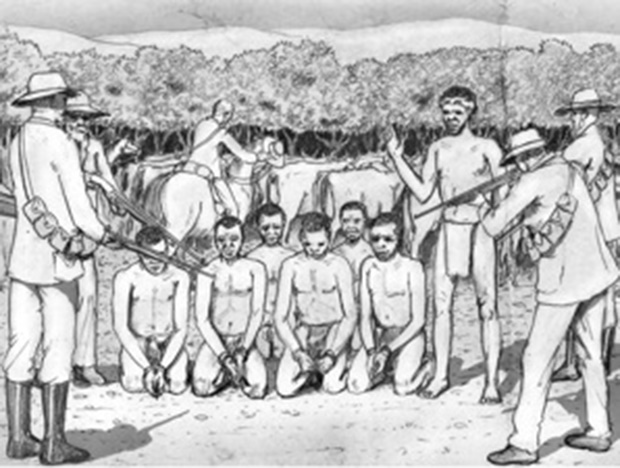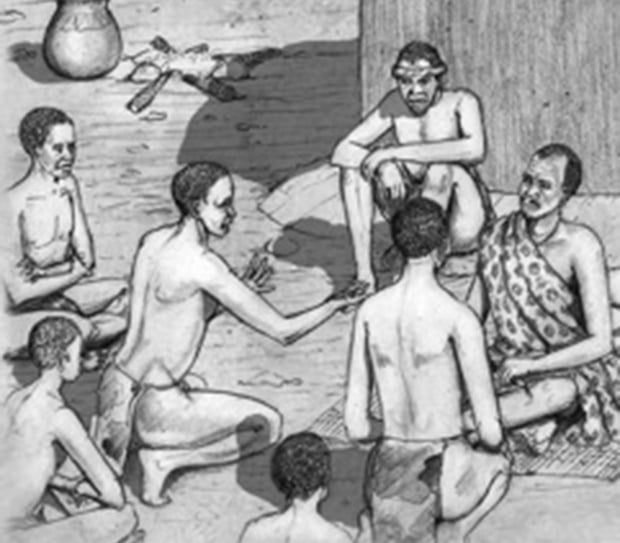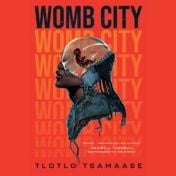Maqoma 2: Final Resistance
South African Heritage Publishers
48 pages, illustrated
R105
When King Ngqika died in November 1829 after a chest illness and, it is told, an abuse of alcohol, someone had to take charge of the kingdom.
Sandile, the son born to King Ngqika and his Great Wife Suthu, was the rightful son to hold the position of Regent.
He was only nine and had unfortunately been born with a crippled leg. Also, he had not reached the age of circumcision and, as such, was not eligible.
His mother lobbied for the regency. Maqoma aligned with his half-brother Tyali for the regency. Thus many squabbles began.
Each of the contenders accused the others of witchcraft and other such deeds. As a result, hundreds of amaXhosa followers were burnt to death.
“Why was there contention for supremacy when Chief [Jongumsobomvu] Maqoma was King Ngqika’s eldest son?” asked Andile, looking puzzled.
“If you remember, King Ngqika married Suthu in 1817. She was one of the daughters of a Thembu chief and therefore Suthu was called his Great Wife.
The Thembu royal lineage was the oldest in the area. It is for this reason that Suthu was called the Great Wife and her first son, Sandile, was proclaimed the Great Son.”
The Rharhabe kingdom was divided between the three rulers, Jongumsobomvu, Tyali and Ngqika’s Great Wife Suthu. Maqoma would act as the regent for external affairs.
In 1830, Eastern Cape farmers were determined to seize more land and labour from the amaXhosa. Again, Stockenström and the farmers renewed cattle raids against the Rharhabe division of the Xhosa nation.
In the past, Maqoma and Tyali had managed to evade these “patrol systems” by hiding all the women, children and cattle, and organising the warriors in groups of up to 600 to ambush the patrols.
This was a tactic devised and perfected by Jongumsobomvu and was noteworthy of his leadership.
It was at this time that Doctor John Philip from the London Missionary Society, a great humanitarian, visited the Cape’s eastern frontier and met with the Xhosa chiefs. Maqoma told him about being driven away from the Kat River.
The chief’s eloquence impressed Philip.
Not only did he think that Maqoma had been treated unfairly, but he also told him that he would bring up the matter with the governor’s superiors in London. Maqoma saw the advantage in this relationship.
A liberal Cape Town newspaper, the South African Commercial Advertiser, published editorials condemning the patrol systems and the colonial aggression towards the amaXhosa.
It was important for the amaXhosa to have someone else rally to their cause. Meanwhile, this divided the white community in the Eastern Cape.
Maqoma’s request to Stockenström for additional land was turned down again and he was advised that the Rharhabe would soon lose more land.
He could now see just how much the Europeans wanted to overpower the amaXhosa and take over their land.
When Somerset, with approval from Cape Town, launched a concentrated offensive against Maqoma’s half-brother Tyali’s chiefdom, Maqoma’s hands were tied.
It was a huge operation with three columns of European and Khoi cavalry scouring the lands.
Hundreds of cattle were driven off. Tyali did not want bloodshed and he even offered to cooperate with the commandant.
Maqoma remained silent. The amaJingqi were just beginning to re-establish themselves after being driven off the Neutral Zone in 1829, and he feared another armed conflict with Somerset.
Jongumsobomvu was not sorry to see his half-brother’s demise because it meant a collapse in Tyali’s wealth and, ultimately, his loss of power which meant he would be less of an opponent.
Another column under Erasmus seized cattle from Tyali’s headman Zeko. He too put up no resistance to the column and even helped drive the cattle towards Fort Wiltshire.
It was on this journey that the Boers shot and killed headman Zeko in cold blood, as well as six of his unarmed men.
Erasmus was not prosecuted for this. Despite losing more than 2 000 head of cattle and the murdering of the Xhosa men, Tyali did not leave the Mancazana Valley.
Maqoma, however, was incensed by the cold-blooded killing of a Xhosa aristocrat and six men from the tribe. He could not contain himself any longer.
He sent a party across the Kei River to inform Chief Hintsa of the killings and ask Gcaleka for support in an uprising against the Europeans.
Border raids continued with horses and cattle being stolen during attacks on Xhosa farms. The Xhosa chiefs organised their own raids against the settler farmers.
Matwa, half-brother to Maqoma and Tyali, had set up his village not far from the Great Place of his father.
He lost the support of King Ngqika’s Great Wife and moved not far from Laing’s mission station, Tyume.
Matwa was dependent on the missionaries for protection, and he and about 45 of his adult followers began taking lessons in Christianity and attending church.
Maqoma feared this would develop into an independent Christian chiefdom and colonial support.
- Read more in Maqoma: Founder of the amaJingqi (book one) and Maqoma: Warrior and Peacemaker (book three)
- To buy the books, ask your nearest bookseller to order a copy if they do not stock the series, or contact the publishers at info@saheritagepublishers.co.za
. For a full list of titles in the series, visit saheritagepublishers.co.za
- For updates and more information, follow Our Story at facebook.com/ancestorstories or on Twitter at @saheritagepub




 Publications
Publications
 Partners
Partners













